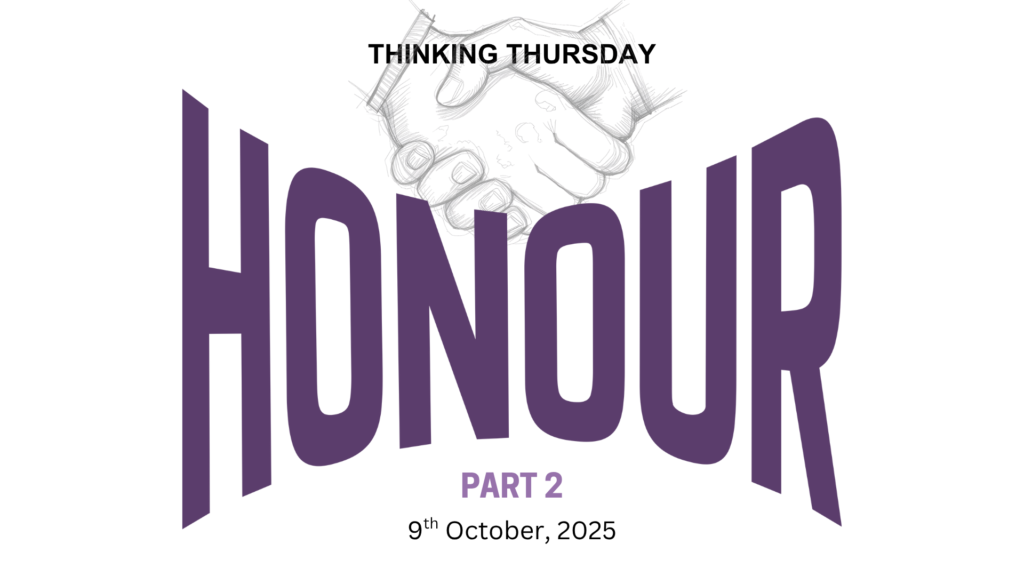HONOUR: CULTURE OR CHARACTER
In Nigeria, one tribe — the Yoruba — is widely regarded as more respectful or honouring than others. They bow or kneel to greet, perform obeisance at weddings, and have a culture that prizes courtesy and deference. But does doing these things automatically make them more honourable than other tribes? What is true honour?
In this episode, let’s explore what the Word says, and how we can live it out practically.
PREVIOUS EPISODE: HONOUR (PART 1)
THE MEANING OF HONOUR
Biblically, to honour means to treat as weighty, valuable, and worthy. The Hebrew word “kabod” (sometimes ‘kabad’) literally means “to make weighty”, to glorify or make something heavy with worth. The Greek equivalent, “timaō” (source: ‘timē’) means “to fix a value or price, value, esteem, prize or respect.”
So, to honour is to treat someone or something as significant, not trivial. It’s to assign worth to them and act accordingly.
But does this mean flattering, greeting or bowing every time you see a person?
Do you know that someone may bow deeply to another person, yet the moment that person turns their back, they scoff or roll their eyes?
Just like other cultures that seem less honouring, such people also exist in the culture of the tribe mentioned above. So, does that mean they honoured the person while they were around, and stopped honouring them the next minute? Of course not. That kind of “honour” is just performance. It looks good, but it’s hollow.
And what about those who only honour people because they have money, influence, or power but the moment those things disappear, so does their respect? Do the things you have automatically make you worthy of honour?
READ ALSO: ARE SPIRITUAL FATHERS PERMITTED? (PART 1)
TRUE HONOUR FLOWS FROM THE HEART
True honour begins in the heart, it’s not about performance, status, wealth, or appearance. It flows from seeing value as God sees it, recognising His image and divine order in others.
Honour isn’t something people earn by having more; it’s something we give because of the worth God places on them. It doesn’t shift with circumstances but remains rooted in how God values people. Ultimately, honour is our response to God’s worth, and to the worth He has placed on those around us; it not based on how we feel, but on what He desires.
In different cultures around the world, honour often looks like kneeling, prostrating, or showering people with gifts and praises. There are situations where, while looking respectful, these actions can be a mask for fear, manipulation, or pretense.
WHO SHOULD YOU HONOUR?
From God, to kings, parents, the aged, widows, spiritual leaders, to every person, honour seems to span across every relationship and responsibility. But how do we truly live this out in today’s world where disrespect is often celebrated, and humility mocked?
That’s what we’ll uncover next: Who we’re called to honour, and how to express that honour in a way that pleases God.
Until then, reflect on this:
Am I honouring people the biblical way, or just the cultural way?
READ NEXT: HONOUR (PART 3)
